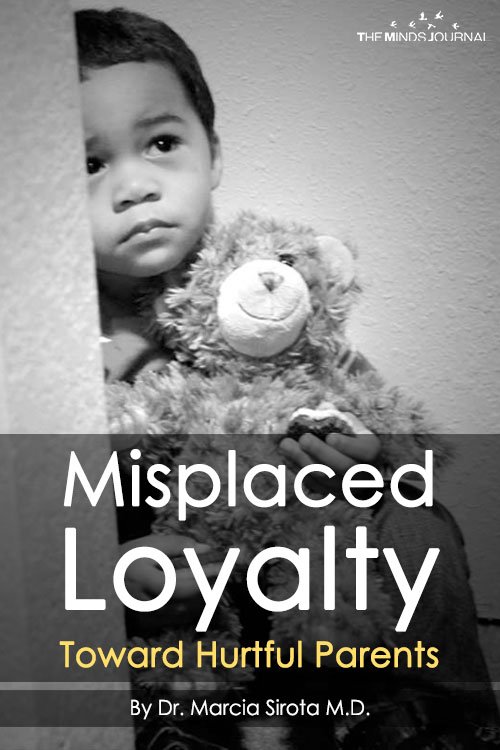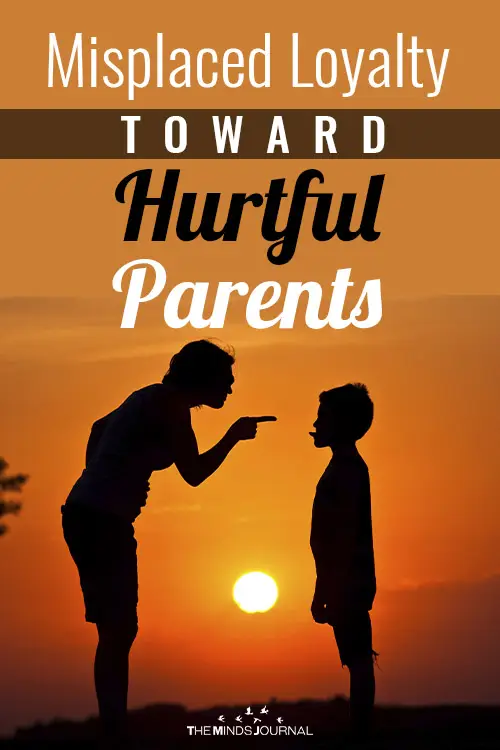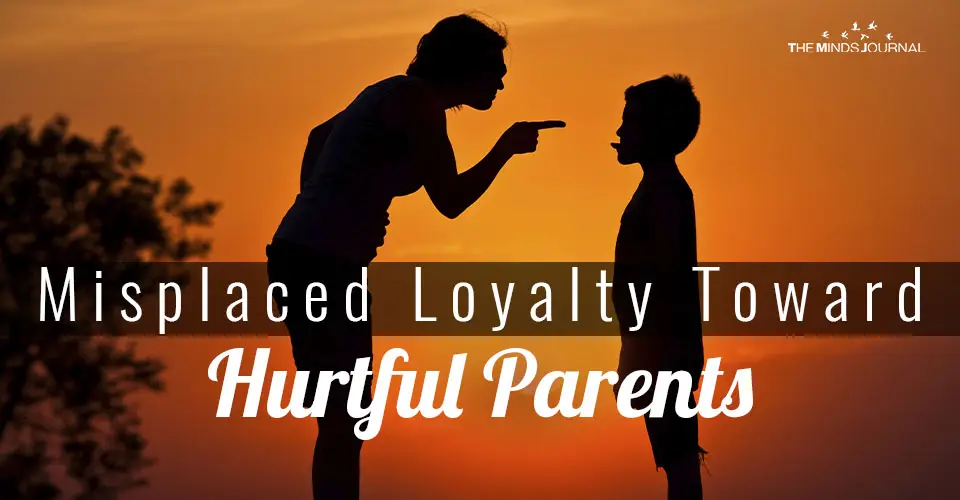Are you someone who has grown up with hurtful parents? Was your childhood mostly made up of your parents constantly putting you down?
Our feelings about our parents can be very complicated. Some of what we feel depends on how they treated us when we were growing up as well as how they treat us today. Sometimes, we just go along with what our culture or society tells us we should feel.
If we have loving, supportive parents, the issue is quite simple: we love them back and appreciate everything they did for us.
It gets more complicated when our parents were less-than-ideal. If they neglected, rejected, or even abused us, we grow up to believe that it was due to our own inadequacies. Children typically blame themselves for what goes wrong in the parent-child relationship.
Rather than holding our parents accountable for how they treated us, we take responsibility for what happened and then try to change ourselves in order to finally win the love they’ve been withholding. What we don’t realize is that when our parents hurt or reject us it has nothing to do with what’s lacking in us and everything to do with their inability to love and accept their children.
Because it’s about them, no matter how hard we try to ingratiate ourselves to our parents, their feelings toward us won’t change. When we fail to win their approval we might feel hurt or even angry, but many of us also believe that we haven’t tried hard enough to please them.
The truth is, love is not a commodity to be bought and sold. Our parents will love us if they are able to and for no other reason.
Still, it’s easier for us to keep blaming ourselves because it’s preferable to facing the unthinkable: the fact that our parents don’t love us. This is an extremely painful realization to come to terms with. Most people would rather do anything than accept this as the truth. Not only is it painful; it’s humiliating.
Even when we recognize that it’s not about our own failings, we don’t like the idea of admitting to our friends or loved ones that we grew up with parents who were hurtful or rejecting. There’s always the fear that others will wonder what we might have done to deserve it. It’s also hard to silence the voice of the “inner critic” which continually tells us that it really is our fault.
Paradoxically, those of us who were loved and accepted while growing up have a much easier time separating from our parents than those of us who were neglected, rejected, or abused.
A secure, loving attachment during childhood leads to a healthy ability to detach as an adult. Those of us from the former group are able to see our parents clearly as the decent but imperfect human beings that they are and can live rich, fulfilling independent lives.
Want to know more about how good and loving parents can shape you into a successful person? Read 9 Traits That Parents of Successful Kids Have In Common
Those of us in the latter group have a much harder time letting go of our parents. We tend to be quite enmeshed with them in adulthood as we continue trying to win their elusive approval. Despite the fact that we might be angry at them and even have on-going conflicts, we continue to spend a lot of time and energy on this frustrating, unsatisfying relationship.
Sadly, the worse we were treated, the more we end up doing for our parents when we’re adults, and the more disrespect we tolerate.
Loving parents create confident self-loving adults who won’t accept mistreatment from anyone. Bad parents raise children who are riddled with self-doubt and feelings of inadequacy. This group accepts being mistreated as a matter of course.
Loving parents never make their children feel guilty for the love and care they’re receiving, and never make the children feel responsible for taking care of the parents’ emotional or physical needs. Bad parents, on the other hand, go on and on about how burdened they are by their children and how many sacrifices they’ve had to make in order to raise them.
Children who were loved don’t feel indebted to their parents and aren’t driven by guilt to attend to their needs after they’ve left home. The unloved group has been brainwashed to believe, incorrectly, that it’s a child’s ongoing role to care for their parents. These people are driven by a powerful sense of obligation.
Beloved children grow into adults who love their parents and who are happy to be there for them when there’s a valid need. On the other hand, loving parents are reluctant to impose upon their adult children; not wanting to be a burden on them. Unloved children grow into adults who may resent their selfish, hurtful parents but who aren’t able to refuse their demands. Unloving parents see children as having been put on earth in order to fulfill parental needs and therefore have no difficulty imposing on them.
Sadly, those of us who were unlucky enough to have been raised by bad parents also get to be burdened as adults by their demands. Despite the fact that they’ve done so little for us and have always put their needs ahead of our own, we maintain a sense of misplaced loyalty. It’s partly because our society insists that we must respect our parents, and partly because we’re still hoping for their love.
Want to know more about how you can move on from hurtful parents? Read How I Survived A Narcissistic Mother and how you can do it too
We need to let go of our feelings of obligation and recognize that if we’d been loved, we would be happy to return the sentiment. In loving families, guilt and obligation never enter into the equation. We want to believe that we belong to a close, happy family, and for those of us who have this, we should appreciate it. For those of us who don’t however, it’s time to face the truth.
We need to see that care-taking hurtful parents aren’t going to make them love us and it isn’t even going to make them happy. People who are so emotionally damaged that they’re unable to love their children aren’t really capable of happiness, either. They try to use us to meet some deep unfulfilled needs within them, but nothing we do could heal the emotional wounds that make them unable to love or care for us.
We’re better off facing the truth about our parents; giving up our futile attempts at winning their love and focusing our attention instead of pursuing more obtainable and fulfilling goals. We can start by working on developing the self-love and self-confidence that our childhoods deprived us of. Then we can enter into relationships with people who are capable of loving and accepting us, just as we are.
Originally appeared on Marcia Sirota MD
If you’re a people-pleaser and can’t stop being nice, Check out Marcia’s upcoming book: Be Kind, Not Nice: How to Stop People-Pleasing, Build Your Confidence and Discover Your Authentic Self
Publication date: December 1, 2016 on Amazon.ca and Amazon.com
If you have grown up with hurtful parents, then don’t even for a second think that it was your fault. It wasn’t your fault that your parents did not love you the way deserved. It’s not your fault that your parents couldn’t be better role models for you. How they treated you is a reflection of them, not you.
If you want to know more about hurtful parents, then check this video out below:










Leave a Reply
You must be logged in to post a comment.